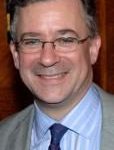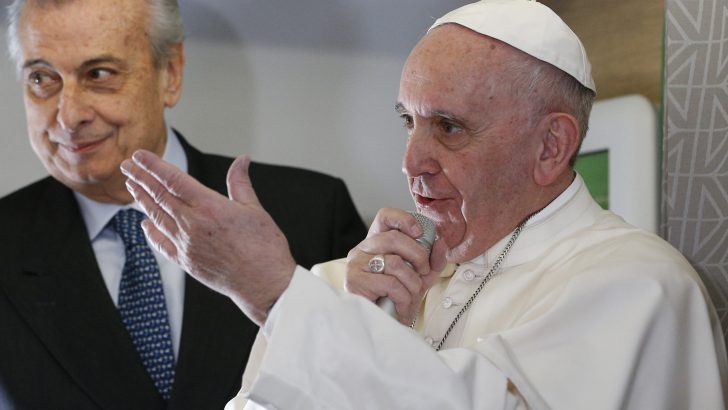It is not hard to guess why the Vatican’s communications supremo, Monsignor Dario Viganò, thought it was a good idea for Pope Francis to have 12 meetings with a French atheist sociologist over much of 2016. The Catholic Church’s commentariat can be an echo chamber, and Francis needs to reach out beyond its walls.
Dominique Wolton is smart and well-read, clearly fascinated by one he calls the “first Pope of globalisation,” and bowled over by Francis’s simplicity and directness (“so lively, comprehensible, and informal”, he gushes at one point).
In his book-length ‘dialogue’ he asks the kinds of questions Catholics probably wouldn’t, such as, “Why don’t you issue an encyclical on the challenges of human and technical communication?” Or “what do you say to those who bang on about the Church’s atrocities and crimes?”
Patience
With exemplary patience, Francis gently points out that he has addressed this or that topic in his daily homilies, or this or that document. At other times he humbly takes the point: “We should talk about that more, yes.”
Wolton’s real interest is in communications, a topic about which he has written a great deal. “Please read the five pages I gave you summarising my theory of communication,” he airily tells Francis at one point. “It’s exactly what I’ve been writing for 30 years.”
“So why are we doing this book?” Francis shoots back, teasingly.
“Because it will mainly be of interest to the secularists, because you are often more liked by the secularists and the atheists than the Catholics,” Wolton ripostes, laughing.
A lot of the book – a hefty tome, with the numbing title of Politique et Societé – is like that. Although Francis gets the larger word count, we are not spared Wolton’s at times lengthy, and not always interesting, thoughts on the state of the world. As an interviewer, he is not much good at pressing Francis to clarify or dig deeper, so that many ideas are left hanging, unresolved.
But he is the kind of interlocutor a certain sort of secular intellectual would trust, and therefore a good way of introducing the Pope to a wider world. Wolton’s focus, appropriately, is on the Church’s social and political engagement, rather than on what he calls “the political and institutional conflicts at the heart of the Church”.
Given that the Pope has often shared those thoughts, in press conferences and interviews, there is little he can say on war and peace, religion and politics, Europe, culture, communication, dialogue with non-believers, mercy, tradition, and so on, that has not been already rehearsed.
So, to anyone who follows his thinking, Francis says little that is new or startling. But he does so at times in greater detail or in ways that he hasn’t before.
In terms of his life story, there are few revelations beyond the one that made the news when the book came out – that he went to a Jewish woman psychiatrist after ending his period as provincial in 1979.
But there are nuggets. As his biographer I was interested in a story involving his little-mentioned maternal grandmother, Maria Sívori. (His paternal grandmother, Rosa, of course looms large in any account of his childhood).
The young Jorge Mario, aged 16, was with her when Prokofiev died in March 1953 and remembers the moment clearly: he was interested in music, he says, and had begun to dream about being the director of an orchestra.
His grandmother Maria listened to him patiently, he tells Wolton, before telling him that this would require a huge effort of work – something the young man hadn’t grasped.
The anecdote itself isn’t significant, but its timing is.
Given that only a few months later Jorge Mario had the experience in the confessional that left him convinced he should be a priest, it confirms that his vocation came ex nihilo, the result of a gratuitous encounter with God’s mercy. Before then, he had been fantasising about living rather different lives.
Here are three other sections in the Wolton interview that throw some new light on Francis’ thinking and inner life.
Although he says he is never anxious, Francis clearly regards the airborne press conferences on his return flights as a big deal. He feels like he is going into the “lions’ den”, he tells Wolton – something he had laughingly told the Vatican press corps on his first flight with them – and always begins with a prayer because, he says, “I try to be very precise.”
There is “a lot of pressure”, he says, and “there have been some slip-ups”.
Wolton doesn’t ask which, not even when he repeats the admission a few sentences later. “I have made a mistake two or three times in my way of saying things,” adding: “On the plane. Two or three times, I’ve made a mistake.”
Instead, Wolton asks if his direct style helps him to communicate better. Francis answers that his is “the pastoral style” of communication. “I try not to speak like a professor but as a pastor.”
Asked if he is happy, the pope says: “Yes, I’m happy. I’m happy. Not because I’m Pope, but the Lord has given me that, and I pray not to do anything too stupid … But I do!”
******
Francis has drawn on his unfinished thesis on Romano Guardini before, in many ways, and in greatest detail of all in an address to the 1994 synod. But he has never applied it to politics in such detail as he does here, as a means of holding in tension unity and identity.
The political craft in its deepest sense – meaning not something just practiced by politicians, but as a form of human service – is “to accept that there is a tension that we cannot resolve”, he tells Wolton.
Rejecting the Hegelian notion of synthesis, in which one party is annihilated in favor of the other, Francis draws on Guardini’s Der Gegensatz (meaning dynamic contrapositions) to suggest the idea of a unity that develops from the holding together of differing positions – the result of a gift of the Holy Spirit, as he has said elsewhere.
True politics, he tells Wolton, means that “there can only be a higher resolution, on a superior plane, where both parties give the best of themselves, resulting not in a synthesis but a common path, a walking together”.
The obstacle to this in both religion and politics is fundamentalism, which clings to identity and refuses to learn from the other, which in politics is expressed in ideology. As result, says Francis, “ideologies cannot do politics. They help you to think … but they are not capable of doing politics.”
As a result of ideology, he says, politics in the 20th Century has frequently broken down and led to war.
The Church’s political and diplomatic role, he says, is to create bridges that allow people to walk together, mirroring God’s action in sending His son to bridge the divide between God and humanity.
Wolton asks Francis, at one point, if he has “won the battle” against the Vatican maladies he famously identified in his Christmas address to the Curia in December 2014.
Francis, who was then (end of 2016) preparing his new Christmas address to the Curia summarizing his reforms, answers: “Yes, it hasn’t gone badly, not just in the organic reform of the organigram, but also the reform of attitudes” – suggesting that, for the Pope, the second is at least as important as the first.
Governance
At the end of the book Francis touches on the Curia again in relation to amplifying the voice and presence of women in the Church’s governance.
“With the reform of the Curia, there will be many women who will have decision-making powers, not just in an advisory role. Because you don’t need to be a priest to head an education department. In the Curia, there is already a second-in-command (vice-directrice) in the Vatican’s press office.”
After discussing the influence of women in the pope’s life, Wolton presses him again, asking if in the Curia he will give women more of a role.
“Yes yes, I think so,” Francis answers. “Because there’s not so much misogyny as all that. That’s not the problem. It’s elsewhere.”
Wolton asks if the problem is one of timidity or “lack of communication,” and Francis agrees. “When they [i.e. the curial bureaucracy] see to what point women can do things better, there’s no problem,” he says. “It’s not that that poses the problem, but something else.”
After Wolton for once presses him, he answers eventually: “A problem of power. We’re working on it.”
Austen Ivereigh is author of ‘The Great Reformer: Francis and the Making of a Radical Pope’


 Austen Ivereigh
Austen Ivereigh